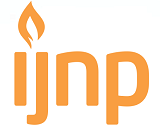Attitudes and Associated Factors towards Care for Dying Patients among Non-Palliative Care Nurses, Yogyakarta, Indonesia
DOI:
https://doi.org/10.18196/ijnp.v5i1.10131Keywords:
attitude, nurses, palliative care, Yogyakarta, FATCOD, death and dyingAbstract
Background: The increment of terminal health problems causes the demand for palliative care to increase. Nurses’ attitudes toward palliative care have critical implications on the quality of care for terminally ill patients. This study aimed to investigate non-palliative care nurses’ attitudes towards death and dying patients in palliative care in Indonesia.
Method: A cross-sectional design was performed in four general hospitals, five primary health centers, and three nursing homes in Yogyakarta. Systematic random sampling was the method employed. The research instrument used Frommelt Attitudes towards Care of the Dying (FATCOD). FATCOD is a 30-item tool using a five-point Likert scale to indicate respondents' attitudes toward caring for dying patients. Attitudes had two categories, namely favorable (≥ mean score of the total score of (FATCOD) Scale) and unfavorable (< mean score of the total score of (FATCOD) Scale). Two hundred seventeen (217) non-palliative care nurses completed the FATCOD and a ten-item demographic questionnaire. The data analysis used descriptive statistics, chi-square, and linear regression.
Results: The total FATCOD score achieved in this study was 111.29±9.44 (range 30–150). Concerning nurses’ attitudes towards the family members of terminally ill dying patients, the score was 39.85 (±4.12) out of a possible 50. Besides attitudes towards patient care provision, the score was 71.43 (±6.39) out of a possible 100. The nurses' attitudes towards the dying patients showed that the favorable and unfavorable attitudes had almost the same percentage. Of significance, working experience variables were associated with attitudes in the total FATCOD and patient FATCOD. Working experience and level of education were related to attitudes towards the family FATCOD.
Conclusion: Non-palliative care nurses had a favorable attitude towards palliative care. The ministry of health should give awareness by providing various training, workshop, formal and informal education about PC for nurses.
References
A'la, M. Z. (2016). The Frommelt attitudes toward care of the dying care form b (FATCOD-B) indonesia version: measurement validity using factor analysis in nursing students. NurseLine Journal, 1(1), 73-82.
Al Qadire, M. (2014). Knowledge of palliative care: an online survey. Nurse education today, 34(5), 714–718. https://doi.org/10.1016/j.nedt.2013.08.019
Frommelt, K, H. (1991). The effects of death education on nurses' attitudes toward caring for terminally ill persons and their families. The American journal of hospice & palliative care, 8(5), 37–43.
https://doi.org/10.1177/104990919100800509
Gamondi C., Larkin P., & Payne S, A. (2013). Core competencies in palliative care: an EAPC White Paper on palliative care education part 1. European Journal of Palliative Care, 20(2), 86-145.
Jo, M, J. (2015). Factors affecting attitudes toward terminal care in nursing students. Korean J Hosp Palliative Care, 18(4), 306-313.
https://doi.org/10.14475/kjhpc.2015.18.4.306
Kang, K, A., Kim, H, S., Kwon, S, H., Nam, M, J., Bang, K, S, Yu, S, J., Jung, Y., Choi, S, E., & Chung, B, Y. (2014). Nurses’ knowledge of and attitudes toward pediatric palliative care of Korea. Korean J Hosp Palliative Care, 17(4), 289-300.
https://doi.org/10.14475/kjhpc.2014.17.4.289
Kassa, H., Murugan, R., Zewdu F, Hailu M, Woldeyohannes D. (2014). Assessment of knowledge, attitude and practice and associated factors towards palliative care among nurses working in selected hospitals, Addis Ababa, Ethiopia. BMC Palliative Care, 13(1).
https://doi.org/10.1186/1472-684X-13-6
Lewis, C., Reid, J., McLernon, Z., Ingham, R., & Traynor, M. (2016). The impact of a simulated intervention on attitudes of undergraduate nursing and medical students towards end of life care provision. BMC Palliative Care, 15(67).
https://doi.org/10.1186/s12904-016-0143-2
Leong, R, L, B. (2003). Palliative care in Malaysia: a decade of progress and going strong. Journal Pain Palliat Care Pharmacother. 17(3-4), 77–85.
Mahendradhata, Y., Trisnantoro, L., Listyadewi, S., Soewandono, P., Marthias, T., Harimurti, P., & Prawira, J. (2017). The The Republic of Indonesia Health System Review. WHO Regional Office for South-East Asia, 7(1).
McConnel, T., Porter, S. (2017). The experience of providing end of life care at a children’s hospice: a qualitative study. BMC Palliative Care, 16(1), 15.
https://doi.org/10.1186/s12904-017-0189-9
Monterosso, L., Ross-Adjie, G, M., Rogers, I, R, Shearer, F, M., & Rogers, J, R. (2016). How Well Do We Understand Health Care Professionals' Perceptions and Needs in the Provision of Palliative Care? A Mixed Methods Study. Journal of Palliative Medicine, 19(7), 720-7.
https://doi.org/10.1089/jpm.2015.0421
Namasivayam, P., Lee, S., O’Connor, M., & Barnett, T. (2013). Caring for families of the terminally ill in Malaysia from palliative care nurses’ perspectives. Journal of Clinical Nursing. 23 (1-2), 173-180.
https://doi.org/10.1111/jocn.12242
Keumhee, N., Juhee, L., Eunhee, C., & Changoh, K. (2016). Factors Related to Emergency Department Healthcare Providers' Attitudes towards End-of-Life Care. The Korean Journal of Hospice and Palliative Care, 19(1), 11-25.
http://dx.doi.org/10.14475/kjhpc.2016.19.1.11
Pan, H, H., Shih, H, L., Wu, L, F., Hung, Y, C., Chu, C, M., & Wang, K, Y. (2017). Path modeling of knowledge, attitude and practice toward palliative care consultation service among Taiwanese nursing staff: a cross-sectional study, BMC Palliative Care, 16(1), 42.
https://doi.org/10.1186/s12904-017-0228-6
Scott, D., Reid, J., Hudson, P., Martin, P., & Porter, S. (2016). Health care professionals’ experience, understanding and perception of need of advanced cancer patients with cachexia and their families: The benefits of a dedicated clinic. BMC Palliative Care. 15(100).
https://doi.org/10.1186/s12904-016-0171-y
Tait, V., Megan, H., Linda, M., Dixon, J., Davis, J, M., & Fernandez, R. (2015). Attitudes of Non-palliative Care Nurse towards Palliative Care, International Journal of Palliative Care, 469174-1–469174-6.
https://doi.org/10.1155/2015/469174
Wang, L. P., Li, Y. J., Yan, W. Z., & Li, G. M. (2016). Development and Psychometric Testing Chinese Version of the Frommelt Attitude Toward Care of the Dying Scale, Form B in Nurses and Nursing Students. Journal of cancer education : the official journal of the American Association for Cancer Education, 31(1), 123–130.
https://doi.org/10.1007/s13187-015-0810-7
Wright, M., Hamzah, E., Phungrassami, T., & Bausa-Claudio A. (2008). Hospice and palliative care in South–eastern Asia: a review of developments and challenges in Malaysia, Thailand and the Philippines. New York: Oxford University Press; 2010.
https://global.oup.com/academic/product/hospice-and-palliative-care-in-southeast-asia-9780199574964?cc=us&lang=en& (accessed 26 October 2020)
Yang, F, Min., Ye, Z, H., Tang, L, W., Xiang, W, L., Yan, L, J., & Xiang, M, L. (2017). Factors associated with the attitudes of oncology nurses toward hospice care in China. Patient Preference and Adherence, 11, 853-860
Downloads
Additional Files
Published
Issue
Section
License
License
Articles published in the IJNP (Indonesian Journal of Nursing Practices) are licensed under a Attribution 4.0 International (CC BY 4.0) license. You are free to:
- Share — copy and redistribute the material in any medium or format.
- Adapt — remix, transform, and build upon the material for any purpose, even commercially.
This license is acceptable for Free Cultural Works. The licensor cannot revoke these freedoms as long as you follow the license terms. Under the following terms:
Attribution — You must give appropriate credit, provide a link to the license, and indicate if changes were made. You may do so in any reasonable manner, but not in any way that suggests the licensor endorses you or your use.
- No additional restrictions — You may not apply legal terms or technological measures that legally restrict others from doing anything the license permits.
Copyright
Authors who publish with IJNP (Indonesian Journal of Nursing Practices) agree to the following terms:
- Authors retain copyright and grant IJNP (Indonesian Journal of Nursing Practices) the right of first publication with the work simultaneously licensed under an Attribution 4.0 International (CC BY 4.0) that allows others to remix, adapt and build upon the work with an acknowledgment of the work's authorship and of the initial publication in IJNP (Indonesian Journal of Nursing Practices).
- Authors are permitted to copy and redistribute the journal's published version of the work (e.g., post it to an institutional repository or publish it in a book), with an acknowledgment of its initial publication in IJNP (Indonesian Journal of Nursing Practices).














